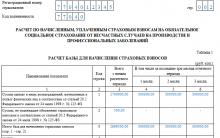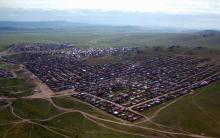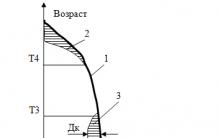Yesterday, the Central Bank announced that FC Otkritie Bank, the seventh largest bank in terms of assets among Russian banks (RUB 2.45 trillion) in the Interfax-CEA ranking, will be accepted for reorganization (“FC Otkritie” - systematically significant bank). This case will be the largest in the history of Russian banking system– and the first project of the Banking Sector Consolidation Fund, created precisely so that the Central Bank could carry out reorganizations independently, without the participation of market investors and the Deposit Insurance Agency (DIA).
The Central Bank will become the owner of at least 75% of the bank's shares; current shareholders may retain no more than 25% of the shares - this is if the provisional administration determines that the bank's capital is positive. If it turns out that Otkritie FC's own funds are negative, the shareholders will lose their ownership rights, the Central Bank said.
Through Otkritie Holding, 66.4% of the bank’s shares are owned by seven individuals and legal entities: one of the founders of the bank Vadim Belyaev, chairman of the bank's supervisory board Ruben Aganbegyan, Alexander Mamut, co-owners of the IFD group Leonid Fedun and Vagit Alekperov, the East group, as well as NPF Lukoil-Garant and the bank VTB. The latter owns 9.9% of the shares.
The Central Bank's statement means that Otkritie Bank will operate as before. The bank's owners will continue to participate in management. This fact will not affect the cooperation between the bank and the Spartak football club.
Leonid Fedun
Co-owner of Spartak and FC Otkritie Bank
What happened to the bankThe bank's capital was obviously insufficient in comparison with the operations and the amount of risk, said the first deputy chairman of the Central Bank, Dmitry Tulin.
And in the reporting, apparently, it was significantly overestimated compared to real values, Tulin continued, according to him, the assessment will appear in three months. “At the level of professional judgment, we at the Central Bank identified the main problems of the bank long ago,” he noted. The Central Bank intended to seek from the bank’s management and owners either additional capitalization or a reduction in operations, Tulin recalled: this is a very difficult task; in carrying out it, the bank faced great difficulties, the Central Bank assessed the likelihood of reorganization as high.
The life of FC Otkrytie was significantly complicated by the deal with Rosgosstrakh. The bank began financing the activities of the insurer even before legal registration property rights, Tulin complained, but he did not say what the financing was. If a bank directly or through intermediaries gives loans to an insurance company that will not be serviced, with economic point From a perspective, this is not lost money, noted the first deputy chairman of the Central Bank, but it is necessary either to create 100% reserves, or, which is more honest and correct, to transform credit into capital.
Strategic mistakesThe Central Bank did not ask or force Otkritie to buy Rosgosstrakh, Tulin assured, this was a continuation of the strategic line of the owners - to aggressively acquire various participants financial market. Now FC Otkritie together with Rosgosstrakh, three pension funds (RGS, Lukoil-Garant and Electric Power Industry), Rosgosstrakh Bank, Otkritie Broker Company, as well as Tochka, Rocketbank and the bank being rehabilitated Trust. will go to the Central Bank's consolidation fund, Tulin said.
This [the purchase of Rosgosstrakh] was a continuation of the general strategic line of the group’s owners to aggressively acquire various financial market participants. Maybe it turned out to be very attractive as a business idea; the opportunity arose to buy a leader insurance market, but the group and the bank clearly did not have enough resources for these purposes. The bank did this on its own initiative.
Dmitry Tulin
First Deputy Chairman of the Central Bank
The reorganization of Trust also created problems for FC Otkrytie, added Deputy Chairman of the Central Bank Vasily Pozdyshev: the bank’s management made several strategic mistakes and the bank cannot develop further without the support of the Central Bank.
The deal with Rosgosstrakh was one of the reasons why FC Otkritie received a low (BBB-) ACRA rating - this does not allow it to hold funds from state-owned companies and pension funds, and in June 106 billion rubles were taken from it.
"Ugra" and nervesIn July, Bank Ugra collapsed, banking market nervousness arose, information attacks began - in total, the outflow from FC Otkritie amounted to over 621 billion rubles: 323 billion were taken by companies, 36 billion by citizens, 263 billion rubles. – other credit organizations.
From July 3 to August 24, companies took 389 billion rubles from the bank, the population - another 139 billion, said the director of the department for supervision of systemic significant banks Mikhail Kovrigin. To cope with the outflow, Otkritie FC took money from the Central Bank - 333 billion rubles. in the repo in July. Moreover, in August the Central Bank opened an unsecured bank line of credit, three people close to FC Otkritie told Vedomosti. Neither the Central Bank nor the bank say how much the bank received from it, or how much it cost it. According to Tulin, these loans cannot be called unsecured; rather, they are a non-standard refinancing instrument on market conditions. Tulin did not say what became collateral for the loans. “We have been working routinely for about a year now on the adoption of an additional refinancing instrument,” Tulin said. “But somehow we were in no hurry, we postponed it, and we will try to finally accept it in September.”
The website of FC Otkritie says that it has subordinated liabilities of $1 billion. The Interim Administration, it is possible, will come to the conclusion that the adequacy of the bank’s core capital will drop below threshold values(5,12 and 2%), which will entail the write-off of subordinated claims or their exchange for shares, the Central Bank said: all subordinated claims that do not indicate that they are subject to conversion are subject to write-off, regardless of when these claims were formed. On Tuesday, subordinated Eurobonds maturing in 2019 rose in price to 79.8% (the day before their price was 47.5%), and the yield was 25.7% (the day before - 66.8%), Bloomberg reported.
The internal confrontation between former partners in the project to create the largest private banking and insurance group in the Russian Federation is developing into an active confrontation with the prospect of litigation in the courts. The partnership agreement between the Rosgosstrakh and Otkritie groups was concluded in 2016.
Former owner of the Rosgosstrakh company and its former president Danil Khachaturov at a press conference in central office Interfax on Wednesday announced full compliance with the agreement with Otkritie Bank. At the same time, the other party - the Otkritie group - did not fulfill any obligations that were discussed when concluding the deal for the sale of Rosgosstrakh, he said.
“We thought and hoped for negotiations. There are no such negotiations. Negotiations with us are being conducted through the press. This is strange. I am already silent about criminal cases,” said D. Khachaturov. He admitted that he was considering the possibility of filing claims related to the deal concluded with Otkritie Bank, as a result of which Otkritie Bank took over a whole series assets of the Rosgosstrakh group.
“Insinuations about the fact that we haven’t completed something, haven’t delivered anything, have no basis. We gave everything, everything that was at that time, at the end of 2016, on the balance sheet or in the group, everything what belonged to me,” everything went to the Otkritie group. Another question is that the main story of the deal was that the Otkritie group also had many obligations, none of the obligations were being fulfilled, he continued.
In accordance with previous agreements, D. Khachaturov transferred to Otkritie his assets such as Rosgosstrakh, RGS Bank and NPF Rosgosstrakh. In addition, 2 thousand real estate objects were transferred as part of the transaction. As a result of the transaction, D. Khachaturov was supposed to receive a share in the merged company, but due to a coincidence, he was forced to transfer all assets for free.
"An asset like" RGS Life“, was not transferred with other assets of the group, since it did not belong to me since 2015,” explained D. Khachaturov. He explained the fact that Otkritie was later taken over by the Capital Insurance company by the fact that it was on the balance sheet of Rosgosstrakh PJSC. D. Khachaturov told reporters that he had no ownership in this company.
In turn, at a press conference in Interfax, the president of the CSKA football club and the RGS Life company, Evgeny Giner, confirmed that he is the ultimate owner of this company and the RGS Medicine company, which specializes in mandatory health insurance(Compulsory Medical Insurance) and is in the top 3 in terms of the number of insured citizens. Since 2015, he has been the owner of the companies under an option agreement, now his rights are being finalized and permission has been received from the FAS Russia.
DESIGNED WITH BIG SCALE
“I did it together with Otkritie, which had 3 trillion rubles in assets, the largest private financial bank and the largest insurance group in the country. As a result, the financial capabilities of the bank and a small number of clients and offices were connected with the NPF and with the Rosgosstrakh bank, as well as with its huge branch network throughout the country and the army of Rosgosstrakh sellers. Both parties benefited from the deal. Everyone emerged victorious,” D. Khachaturov said at a press conference.
However, the peculiarity of the situation was the simultaneous problems of the parties to the transaction. According to the former owner of Rosgosstrakh, by the end of 2016 it was obvious to him that the company would receive a loss of 30 billion rubles at the end of 2017. After this, D. Khachaturov came to negotiations with the Central Bank with a rescue plan and a potential investor.
The agreement with Otkritie Bank was concluded in April 2016, and since June, difficulties began for the bank itself, now it is undergoing a reorganization procedure, its capital was brought to 1 ruble during the reorganization. Then the bank needed additional capitalization; it developed a development strategy until 2021. Rosgosstrakh is considered an integral part of this strategy. By the end of 2020, the insurance company should make a profit of 20 billion rubles. At the end of 2018, its profit will be small.
Commenting on the results of Rosgosstrakh's activities in 2017, D. Khachaturov said: “According to the annual report according to IFRS, the loss of Rosgosstrakh amounted to 58 billion rubles. These losses are divided into two parts. One half is our very expectations and the loss from OSAGO operations amounting to 30 billion rubles, the rest is the result of revaluation securities Otkritie Bank itself on the balance sheet of Rosgosstrakh (as previously reported, according to annual report"Rosgosstrakh", the company suffered more than 29 billion rubles in losses due to the depreciation of shares of Otkrytie Bank and bonds of the holding company of the same name).
“In the first quarter of this year, Rosgosstrakh has already made a profit. Due to what? Due to the fact that the share of compulsory motor liability insurance has been radically reduced over the past 3 years, which in 2015-2016 reached 40% of all-Russian fees for this type. Due to this that the rules on in-kind compensation in OSAGO began to work, a strict policy of reducing sales was carried out. Well done, Rosgosstrakh has no problems with either the reserves or the assets of Otkritie Bank in the deal with Rosgosstrakh. according to the bank’s IFRS reporting, amounted to 32 billion rubles in 2017,” said D. Khachaturov.
OFFENSIVE
Active offensive actions against partners were unexpected, D. Khachaturov admitted to journalists. So, according to him, the initiation of a criminal case against his brother and closest partner Sergei Khachaturov “blew his mind.”
Earlier it was reported that on June 13, the Lefortovo Court of Moscow planned to consider a petition to extend the detention of former vice-president of Rosgosstrakh S. Khachaturov and the house arrest of ex-shareholder of Rosgosstrakh Bank Nadezhda Klepalskaya, accused of embezzlement of more than a billion rubles. The investigation asks to extend their preventive measure for another three months, until September 17. They were charged under Part 4 of Art. 160 of the Criminal Code of the Russian Federation (embezzlement or appropriation of someone else’s property on an especially large scale). The arrest took place in Moscow on April 17 by FSB officers. On April 18, the Lefortovo Court of Moscow, at the request of the FSB, chose a preventive measure for them. S. Khachaturov was placed in the Lefortovo pre-trial detention center until June 16. As the media note, the amount stolen can be several times more than 1 billion rubles - up to 5 billion rubles; however, investigators are still determining the exact size. S. Khachaturov does not admit his guilt.
D. Khachaturov admitted on Wednesday that the initiation of a criminal case against his brother and partner S. Khachaturov is also connected with another part of the deal concluded between the Rosgosstrakh group and Otkritie Bank.
Last week Moscow arbitration court received a claim from Rosgosstrakh, which belongs to the reorganized Otkritie bank, for 116 billion rubles, the claim is related to the unlawful use of a trademark, the main amount of the claims was 2 billion rubles, the rest are penalties and fines. A similar claim was filed against the company "RGS Medicine", the amount of the claim is unknown. As the president of the CSKA football club and the RGS Life company E. Giner explained to journalists, “the companies themselves have not yet received the claims, but they know about them.” According to him, the brand assessment of the Rosgosstrakh Life company was carried out by an individual private entrepreneur from the region.
"RGS Life has never been on the balance sheet of Rosgosstrakh. It is an independent business, like NPF and Rosgosstrakh Bank. They are connected by a brand and in some places by a network. At one time, we acquired the life insurer of the Otkritie group, and the brands were used mutually for another 2 years. One of the key provisions of the 2016 agreement with the Otkritie holding was joint sales in networks. These agreements were reached and recorded under English law in London,” D. Khachaturov clarified during the press conference.
E. Giner confirmed that the agreement between the RGS Life company and Rosgosstrakh is still in effect today. “Until recently, Rosgosstrakh and Otkritie Bank regularly received commissions from the sale of RGS Life products. RGS Life did not receive notices of intention to terminate the existing agreements,” said E. Giner.
Answering questions from media representatives, D. Khachaturov expressed categorical disagreement with the fact that the Rosgosstrakh insurance company is undergoing reorganization. “There is no reorganization at Rosgosstrakh - this is a fundamental thing. There is no reorganization at the Rosgosstrakh group. Rosgosstrakh does not have any state money, neither I nor Rosgosstrakh have any debts to the Otkrytie group. If anyone “If you don’t like the contract that exists, you can apply for its termination,” said the former owner of Rosgosstrakh.
“I don’t understand the logic by which parts of the deal are disputed even though it itself is not disputed,” explained the former head of Rosgosstrakh. At the same time, he clarified that, “of course, we are not talking about the return of Rosgosstrakh itself.” D. Khachaturov refused to clarify the possible positions formulated in the claims or their amounts, saying that such decisions could be made in the near future.
At the same time, he emphasized that he himself and the current owner of the RGS Life company E. Giner are ready to conduct a dialogue with interested parties in order to remove all controversial issues and resolve all issues pre-trial.
HISTORY OF THE ISSUE
In mid-August 2017, the FAS Russia approved the deal between Rosgosstrakh and the structure of the owner of Otkritie Holding, Vadim Belyaev, Otkritie Inform. In fact, the insurance company has been under the control of Otkritie managers since February 2017, Rosgosstrakh reported. It was assumed that the former owner of the insurer D. Khachaturov would receive a minority stake in the combined structure, but he never received a share. Officially, Otkritie Bank formalized control over Rosgosstrakh on August 28, 2017. Later, the Central Bank announced the reorganization of the bank together with the insurance company. Now the bank owns 96.66% in Rosgosstrakh.
At the end of 2017, the head of Otkritie and chairman of the board of directors of Rosgosstrakh, Mikhail Zadornov, stated in an interview with the Kommersant newspaper that theft reigned in the company from top to bottom. He admitted that losses in the field of compulsory motor liability insurance could affect financial results company, but at the same time noted that the company “simply burned out because its business model did not correspond to today and was never intended to bring legal profit to shareholders." "Apparently, Rosgosstrakh shareholders preferred to receive benefits from owning the company in some other way,” he said.
As reported, previously RGS Life was part of the Rosgosstrakh group. After Rosgosstrakh, along with Otkritie Bank, entered the perimeter of the financial recovery carried out by the Central Bank of the Russian Federation, it turned out that since 2016, the final beneficiary of the life insurer is Alkhas Sangulia. At the beginning of 2018, E. Giner announced that since November 2015, all rights to the RGS Life company belong to him.
The additional capitalization of Rosgosstrakh by Otkritie in 2017 reached 106 billion rubles, the insurer reported in its press release with reference to Nikolaus Frei, CEO of Rosgosstrakh.
The insurance company and the bank of the same name by Danil Khachaturov went to the owners of Otkritie and, ultimately, to the state free of charge, but with significant debts.
Rosgosstrakh, just purchased by Otkritie, will become one of the main items of expenditure of the Central Bank for the bank’s reorganization. The Central Bank will spend 250-400 billion rubles on additional capitalization of FC Otkritie. The estimate is preliminary, so the reorganization is likely to be the largest in history. Before this, the record holder was the Bank of Moscow, for the rehabilitation of which the state allocated 295 billion rubles.
According to The Bell, the Central Bank was considering different options solving Otkrytie problems since the beginning of 2017. A comprehensive audit of the bank began in May 2017. The Central Bank “does not yet have information about the withdrawal of assets from the bank.” In the case of Otkritie, one of the main expenses of the Central Bank will be the support of Rosgosstrakh, which the bank has just purchased. The purchase of an insurer with tens of millions of clients (21.5 million under compulsory motor liability insurance alone) was Otkritie’s last major deal on the way to the “too big to fail” status.
OSAGO brought huge losses to Rosgosstrakh (in total, in 2016 the company’s net loss amounted to 33 billion rubles, in the first half of 2017 - more than 23 billion rubles). But Otkrytie shareholders expected that the deal would turn it into the largest private financial group in Russia with assets of 4-5 trillion rubles and 55 million clients.
The former owner of Rosgosstrakh, Danil Khachaturov, was supposed to become a minority shareholder of this largest group. How did it all end? As The Bell found out, Khachaturov, as a result of the sale of Rosgosstrakh, did not receive a stake in the Otkritie group as planned.
The sale of Rosgosstrakh by Khachaturov became known at the end of last year. The deal was supposed to be non-cash - the insurance company, RGS Bank and other assets of Khachaturov, including real estate, were to be transferred to the Otkritie group. Before the regulator’s decision to rehabilitate the bank, it was planned that for his assets Khachaturov would receive a minority stake in the Otkritie holding company. Vedomosti estimated Khachaturov's future stake at 8%.
The deal to sell the assets was closed, but Khachaturov did not receive any package, said sources close to the bank and Khachaturov himself. One of the sources close to the businessman interprets the deal as follows: Khachaturov actually gave away the company, getting rid of the unprofitable business. Now this is a state problem. The Central Bank promises that Rosgosstrakh and other companies of the Otkritie Bank group will continue to operate as normal and serve customers. The chief managing director of the insurance company, Nikolaus Frei, hopes that the decision of the Central Bank will help the company overcome the crisis in the OSAGO segment.
In fact, the debts incurred by Khachaturov and the shareholders of Otkritie Bank will now be paid by the Central Bank of the Russian Federation and the Russian budget.
About the reorganization of Otkritie, one of the largest private banks in Russia, ranking eighth in the country in terms of assets. The regulator will become the main owner and investor of the company. Previously similar scheme financial rehabilitation of banks has never been applied. Among the organizations and services included in the Otkritie group are the banks Trust, Tochka, Rocketbank and Rosgosstrakh Bank, as well as Rosgosstrakh, Otkritie Broker, NPF Lukoil-Garant, NPF Elektroenergetiki and NPF RGS. .
The Village tried to figure out whether the reorganization of Otkritie could have a negative impact on customers and whether it was worth worrying about what was happening.
What the reorganization participants sayRocketbank, owned by Otkritie, urged clients not to worry and assured that they are under the protection of the Central Bank. At the same time, Rocketbank associated the problems of the parent company with an information attack. Let us recall that in June the Russian agency ACRA assigned Otkritie low rating BBB-, and in August the manager of Alfa Capital sent a letter to the company’s clients warning about the bank’s risks.
Press service of Rocketbank
Due to the ongoing information attack in recent weeks, a lot of funds were withdrawn from Otkritie Bank, and financial stability decreased. Therefore, he received support from the Central Bank. Rocketbank has become even more reliable, as the Central Bank becomes a shareholder of Otkritie. This event will not have any impact on the bank's operations or operations. We will continue to operate as normal.
Earlier, the Central Bank promised that Otkritie and the organizations and services associated with the bank would continue to operate as usual.
What experts sayExperts in financial sector confirmed that reorganization is the most favorable outcome for clients who will not notice problems arising at Otkrytie in the near future.
Alexandra Krasnova
editor-in-chief of Sravni.ru
What happened to Otkrytie, only its owners and Central Bank, and building theories is pointless now. What matters now is what will happen to clients. For them, sanitation is the softest and most painless option for solving the problem.
From the regulator’s message we understand that all banks and financial institutions, members of the Otkritie group, will continue to work as usual, and even under the supervision of the Central Bank itself. That is, it will be possible to pay with cards, open and close deposits, trade on stock market through the Otkritie broker and save money for retirement in pension funds.
Natalia Romanova
editor-in-chief of the Banki.ru portal
The Central Bank helped Otkritie with money to ensure uninterrupted payments so that customers would not feel any difference. This is done primarily to protect Otkrytie clients. The company receives state support, and, most likely, this will reassure customers and the outflow will stop corporate clients from the financial group.
The main problem of the insurance market - the unprofitability of compulsory motor liability insurance - has already led to a crisis for the largest retail company Rosgosstrakh. Deputy Chairman of the Bank of Russia Vladimir Chistyukhin told Kommersant correspondent Elena Weber what the Central Bank thinks about this, how it will rehabilitate other problematic insurers, which segments of the insurance market will go away and which ones may show growth.
— Payments under compulsory motor liability insurance reduce the profits of insurers. Are the tariffs in the segment sufficient?— In the first quarter of 2018, we will conduct an actuarial assessment of their adequacy. When we talk about the unprofitability of compulsory motor liability insurance, we must not forget that it is the key to the retail market. And, as our analytics show, many insurers are not doing enough to regulate their unprofitability and reduce costs. By at least in the past, many of them made minimal efforts to stop MTPL fraud and auto intermediaries who abuse the law. In addition, when assessing tariffs, we will need to understand how loss-making was affected by the transition from direct payments to repairs. What is important is that the bulk of the losses were and still are accounted for by Rosgosstrakh, but today the company is taking serious measures to reduce them: organizational, legal, including measures to combat internal fraud. If these actions are successful, losses will be reduced sharply.
— How do you rate financial stability insurers?— Compared to 2013, when the Central Bank received powers to regulate and supervise the segment, market stability has increased. Requirements for standards, reserves, own funds, companies were forced to seriously improve the quality of their assets. Plus, measures are being taken with respect to the largest insurers aimed at improving their risk management systems, internal control, actuarial function, audit requirements, and now the Central Bank trusts them much more.
— What will the reorganization mechanism give to the insurance market?— This is a tool for increasing the variability of decisions of the supervisory authority: what to do with a company that is in a difficult financial situation? If its departure is fraught with risks for a particular region or for the country as a whole, we will be able not only to close it, as is happening now, but also to ensure the continuation of its work. Of course, by changing owners, management and additional capitalization.
— Is what is happening to Rosgosstrakh a reorganization or not? Everything you listed happened there: change of owners, management, additional capitalization...— Rosgosstrakh is within the scope of the reorganization of its main owner, Otkritie Bank, and, of course, the owner helps Rosgosstrakh financially.
— And if at the time when Rosgosstrakh fell within the scope of reorganization, there had been a legal opportunity to sanitize it directly, how would the Central Bank have acted?— It is quite possible that we would use the same group principle. It is important for us to maintain the perimeter of the Otkritie group. It includes different financial market participants: banks and insurance companies, and non-state pension funds, professional participants in the securities market. This allows you to gain synergy through the development of partner channels, cross-selling, and dividing the customer base.
— There is a point of view that Otkritie’s purchase of Rosgosstrakh was precisely necessary so that the Central Bank could immediately improve the health of two big problem players...— The owners of Otkritie made the decision to purchase Rosgosstrakh themselves. But we did not oppose this deal, including because we did not exclude the prospect of reorganization.
— How long in advance can you foresee that you will sanitize the company?- It's hard to say. The former owners of the company and I began to seriously discuss the problems of Rosgosstrakh in the fall of 2016.
— When a mechanism for rehabilitating insurers appears, will it be advisable to apply it to Rosgosstrakh?- Of course not. Why change a scheme that has proven to work?
— What are the costs for additional capitalization of Rosgosstrakh?— Rosgosstrakh received 24 billion rubles in the third quarter of 2017. I think that by the end of the year we will need up to 10 billion rubles more, and we continue to make estimates for 2018. Until the third quarter, funds were contributed by the Otkritie group, and these were tens of billions of rubles.
— The reorganization of insurers at the expense of the Central Bank means that you do not see the opportunity to find market investors?— It’s difficult to find an investor when a company has negative capital and a hole in its balance sheet. Interest arises when the company is no longer unprofitable and may be making a small profit. This is exactly the plan we envision for Rosgosstrakh: we need to make the company minimally profitable, and then decide whether it will be sold on the market or remain in the Otkritie group. But this is a conversation for the future.
— The Ministry of Finance would like to see clearer grounds for the Central Bank’s participation in the rehabilitation of the insurer than the social significance of the business and the threat to financial stability...— When we prepared the bill, we relied on banking experience. He justified himself. It seems to us that listing point criteria in the law can play a role in reverse side: everyone will understand that a decision needs to be made on reorganization, but some criterion has not been met. The current formulations, from our point of view, quite fully reflect the general problems of when rehabilitation is needed.
— The Ministry of Finance is afraid of subjectivity in decisions...— The decision to reorganize is in any case a motivated judgment: a quantitative calculation is impossible. Thus, it is very problematic to assess social risks in terms of numbers.
- They will only be sanitized large insurers?— It is obvious that the mechanism of state rehabilitation is more suitable for the largest market participants in difficult situation. For a company to have an impact on a region, and especially on a country, most often it must be a large federal company. Although we must not forget about companies specializing in socially significant types of insurance.
— The bill contains a provision that the company being rehabilitated stops monetary obligations before the controlling persons. What does it mean?— Parents of the company being reorganized will not be able to claim satisfaction of their claims on an equal basis with external creditors.
— The first bank reorganization under the new mechanism began a few months after it appeared. When can I expect my first insurance claim?— We do not have a prepared list of companies. We are talking about creating a preventive institution that can work if necessary. And I really hope that this law will remain theoretical for a long time.
— The same company will be responsible for rehabilitating insurers management company as in the banking market. Will people from the insurance market be attracted there?— If the management company receives the functions of rehabilitating insurance companies, then obviously it will need to attract people who have competencies in insurance. Perhaps some of the employees will be hired from the market, or someone from the Central Bank’s insurance market department will also decide to go to work there. We will recruit staff when the law is in its final stage.
— The insurance market is growing mainly due to investment insurance life, but experts warn it won't last long. Isn’t this scary for the Central Bank?— Life insurance continues to show dynamic growth - over 60%. I think that we will close 2017 with approximately the same dynamics. The market has serious potential, especially if we remember that the share of life insurance in our GDP is extremely low - 0.2% (in European countries it is on average more than 7%). But we pay attention to the relationship of insurance companies with customers, primarily to the disclosure of information and customer understanding of the products purchased.
— Won’t customer disappointment in the profitability of ILI affect market growth?— We must first understand whether these expectations will be justified or not. If I understand that profitability is associated with investment risks and the risk lies with me, I am calmer about the fact that I did not earn something. It's different if I'm waiting high interest rates, and the contract stipulates that I may not receive them - I will be disappointed. According to the Central Bank's forecast, life insurance will continue to grow at a pace leading relative to other segments, but the issue of trust is key here.
— What other market segments are promising?— Growth above average can be shown by housing insurance against emergencies if a law on it is adopted, and agricultural insurance if, at the level of state policy, we change the view of agricultural producers and regional authorities on the need for insurance. Plus, world practice shows that “green” insurance (environmental—Kommersant) and cyber risk insurance have potential.
— Can these segments grow as intensively as ILI?— As I imagine changes in legislation and market structure, no, we will not see such growth.
— Agricultural insurance with state support is now, on the contrary, falling sharply due to a single subsidy. Why do you think it will grow?— Indeed, the change in approaches to subsidies played a certain negative role, but, in our opinion, one of the reasons is good harvests recent years. They teach agricultural producers that insurance may not be needed because there are no losses. But the agricultural sector remains vulnerable, for example, to weather events, and insurance can cover losses associated with crop failure. If we implement the set of measures that we propose in the advisory report on the development of agricultural insurance, the market will begin to grow. If not, the situation will remain approximately the same as today.
— What measures do you propose?— There is currently a discussion underway about removing the insurance subsidy from a single one, including it in the OHI system or index insurance - when the basis for payments is the indicators of certain indices. For example, if the crop did not die, but frost simply occurred. The introduction of a weather observation system, the abandonment of the crop loss threshold and the introduction of a flexible franchise - 10%, 30%, 50%, the ability to choose any combination of risks for a contract with state support are being discussed.
— What awaits the insurance of developers after the appearance of the Fund for the Protection of Shareholders and the President’s order to refuse shared construction? Companies in this segment, like RINCO, are already leaving the market...— The guarantee system in shared construction moves from insurance and banking sector to the fund of shareholders, and the share of insurance companies will become significantly smaller: insurance from imputed becomes voluntary. But we must remember that the guarantees of the shareholders’ fund apply only to newly concluded contracts for new objects. For already concluded insurance contracts, the old system continues to operate - companies will both re-insure these objects and bear responsibility for them. Today its volume is approximately 3 trillion rubles, and it is obvious to us that insurers will play a significant role in this segment for at least three to five years.
But due to the refusal of shared construction, this business will still be finite for insurers. Therefore, monocompanies that had no other types of business are beginning to transfer portfolios or leave the market. However, there are also universal companies - their segment will shrink, but many others will remain.











Carrying out an inventory
Ulyukaev, Navka and Patrushev
Income tax refund for treatment: registration procedure and calculation of the deduction amount
Import substitution - what is it?
OSAGO minimum insurance period